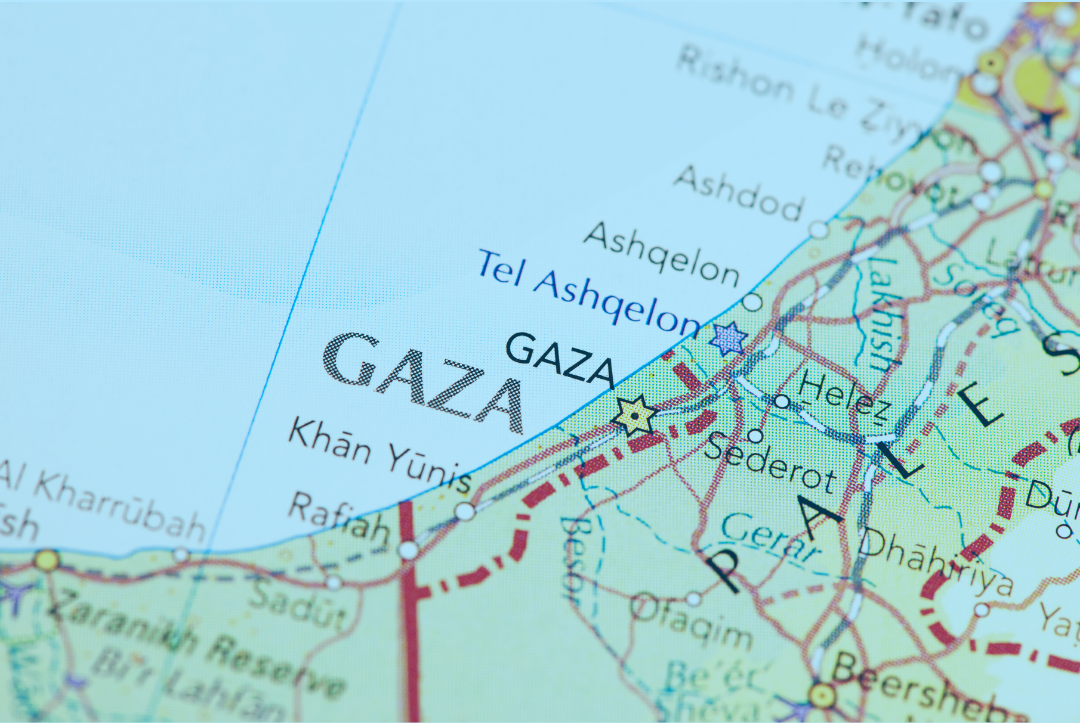Israeli Gaza Campaign Triggers Global Diplomatic Backlash as Allied Nations Break Ranks

Intelligence Summary
The ongoing Israeli military campaign in Gaza has resulted in a dramatic escalation of civilian suffering, mass displacement, and widespread international condemnation. On August 12, 2025, Israeli Prime Minister Benjamin Netanyahu publicly advocated for the departure of Palestinians from Gaza, stating, “We are pushing for the departure of Palestinians from Gaza”. Simultaneously, Egypt sought a 60-day truce to halt the violence and address the humanitarian crisis.
Reports confirm that Israeli airstrikes have continued to target Gaza City, and the United Kingdom and allied nations have demanded urgent action to address the unfolding famine. Over a 24-hour period, Israeli forces killed 89 Palestinians, according to casualty figures reported on August 11, 2025. In addition to the air strikes, the death toll in Gaza continues to rise due to severe malnutrition, with aid agencies and international observers warning of starvation and famine conditions.
International outrage has intensified following the deaths of journalists in Gaza. On August 12, 2025, the widow of a slain journalist demanded justice, and protests erupted worldwide over the killing of Al Jazeera journalists, with claims of direct targeting by Israeli forces. The deaths of four journalists in Gaza City were reported, with allegations that they were deliberately targeted. Al Jazeera staff in Gaza have publicly mourned their murdered colleagues, and global civil society has mobilized in protest.
The humanitarian crisis has prompted a coordinated diplomatic response. On August 12, 2025, twenty-four US-allied nations issued a joint call for Israel to lift all restrictions on aid entering Gaza, emphasizing the urgent need for humanitarian access. Ministers from multiple countries described the suffering in Gaza as “unimaginable” and called for immediate action. The United Kingdom and other allies have specifically demanded that Israel address the famine and allow unrestricted humanitarian aid.
Amid the crisis, Israel’s leadership has maintained a defiant stance. Prime Minister Netanyahu, when confronted with accusations of genocide, responded, “If we wanted to commit genocide, it would have taken exactly one afternoon,” dismissing the allegations and reiterating Israel’s intent to continue its military operations. Reports have also emerged that Israel is in talks about the possibility of relocating Palestinians from Gaza to South Sudan, a claim that has not been officially confirmed but is being discussed in diplomatic circles.
The conflict has also had significant political repercussions beyond the region. Australia has announced its intention to recognize Palestinian statehood, joining a growing list of countries moving toward formal recognition in response to the crisis. Analytical reports indicate that Australia is likely to be the next US ally to pledge recognition of Palestine at the United Nations, reflecting a broader shift among Western democracies.
Within Israel, the opposition chief has backed calls for a strike in support of Gaza hostages, highlighting internal political divisions over the government’s handling of the conflict.
The international community continues to describe the situation in Gaza as catastrophic, with widespread calls for the allowance of unrestricted humanitarian aid, an immediate ceasefire, and accountability for alleged war crimes.
Why it Matters
The escalation of the Israeli military campaign in Gaza is catalyzing a profound realignment in global geopolitics. The humanitarian crisis, marked by mass civilian casualties, famine, and the targeting of journalists, has triggered a wave of diplomatic backlash that is reshaping alliances and exposing deep fractures within the international system. The decision by Prime Minister Netanyahu to publicly advocate for the departure of Palestinians from Gaza, coupled with ongoing military operations resulting in high civilian death tolls, has intensified scrutiny of Israel’s conduct and the credibility of its Western backers.
The crisis is undermining the legitimacy of US leadership among its traditional allies and the broader international community. The joint call by twenty-four US-allied nations for Israel to lift all restrictions on aid to Gaza signals a rare public divergence from Washington’s longstanding policy of unconditional support for Israel. This coordinated diplomatic pressure reflects growing discomfort among Western democracies with the perceived double standards in the application of international law and humanitarian norms. The United Kingdom and other allies’ demands for action against famine in Gaza further illustrate the erosion of consensus within the transatlantic alliance.The US-allies response to the humanitarian crisis is intended to signal disapproval of Israeli policies while supporting Palestinian aspirations for self-determination.
The crisis is also fueling polarization within the European Union and among US-allied democracies. The public outcry over the deaths of journalists and the targeting of media workers has galvanized civil society and increased pressure on governments to reassess their relationships with Israel. The widespread protests and demands for justice reflect a broader shift in the global discourse on accountability, human rights, and the protection of civilians in conflict zones. The international disapproval of Israel’s US-Backed military actions underscores the potential for the Gaza conflict to drive wedges between Washington and its partners. The US ongoing support of Israel in the conflict also provides rival powers the opportunity to challenge Western influence.
The persistent refusal of Israel’s leadership to accept accountability, as exemplified by Netanyahu’s dismissive remarks regarding genocide allegations, is likely to further isolate Israel diplomatically and increase calls for international investigations and sanctions. Israel’s reported discussions about relocating Palestinians to South Sudan, are also seen as illegitimate and unacceptable by a majority of the international community. If these claims were substantiated, they would also have far-reaching implications for regional stability and could trigger further displacement and conflict.
The situation in Gaza has implications far beyond the region, accelerating a global realignment and weakening US-led alliances. The humanitarian fallout, diplomatic ruptures, and shifting recognition of Palestinian statehood are reshaping the geopolitical landscape in ways that will have lasting consequences for regional and global security architectures.
Key Actors
- Israel (Government, military, Prime Minister Benjamin Netanyahu)
- United States (as primary backer of Israeli operations)
- Egypt (mediator seeking truce)
- Australia (moving toward recognition of Palestinian statehood)
- United Kingdom and allied nations (demanding humanitarian access)
- Iran (regional actor, claims of mass detentions)
- Palestinian population and leadership in Gaza

